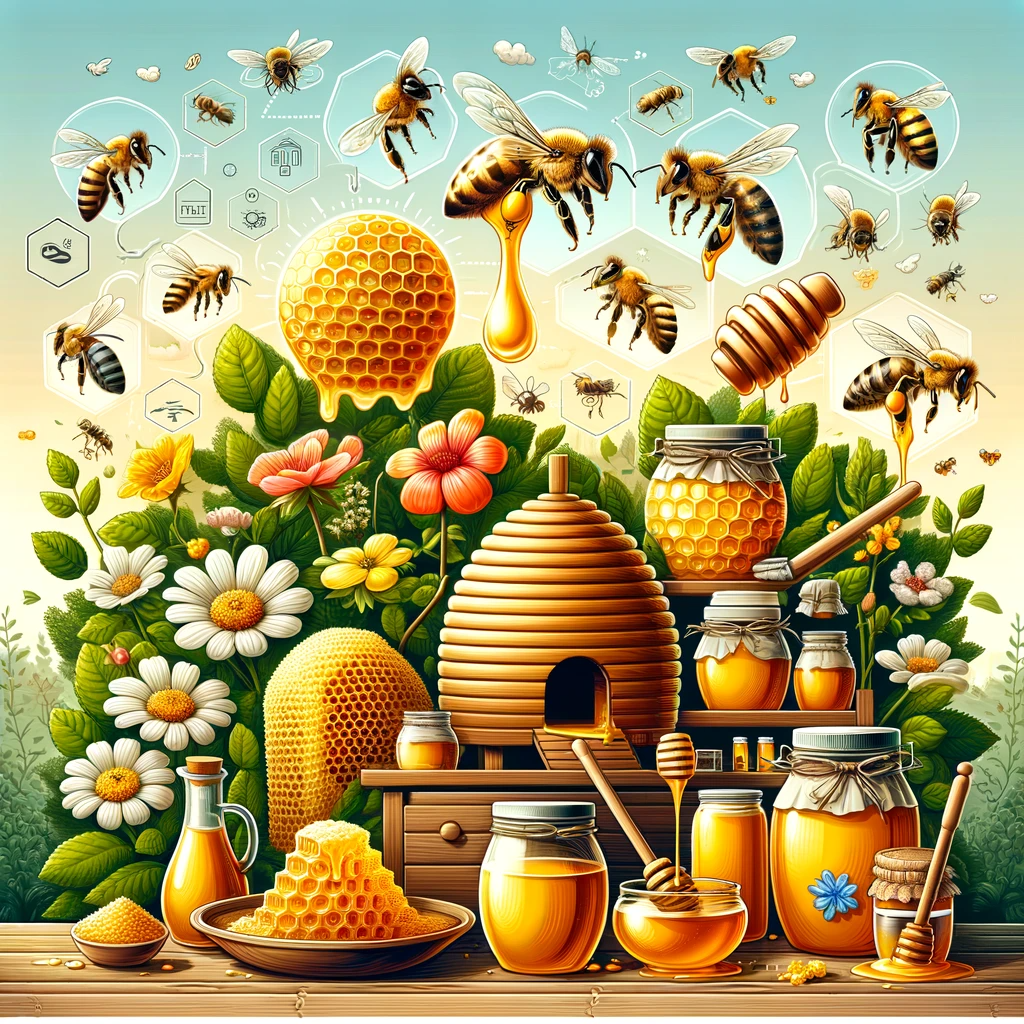Organic honey has gained immense popularity in recent years due to its perceived health benefits and eco-friendly production methods. As consumers become more conscious of what they eat, they are seeking products that are not only delicious but also meet high-quality standards. In this article, we will delve into the world of organic honey, exploring its ingredients, production process, and certification standards.
What Makes Honey Organic?
1. Ingredients Matter
The primary factor that sets organic honey apart from conventional honey is the source of the nectar and the way the bees collect it. Organic honey is derived from the nectar of flowers that have not been treated with synthetic pesticides or herbicides. This means that the bees that produce organic honey forage on pesticide-free and non-GMO plants.
2. No Chemical Additives
Unlike conventional honey, organic honey does not contain any chemical additives or preservatives. It is completely pure and unadulterated, preserving all the natural goodness of honey without compromising its integrity.
3. Beekeeping Practices
Organic honey production also involves ethical beekeeping practices. Bees are treated with respect and not subjected to harsh chemicals or antibiotics. This ensures the health and well-being of the bee population, which is crucial for sustainable honey production.
Certification Standards for Organic Honey
1. USDA Organic Certification
In the United States, organic honey can be certified by the United States Department of Agriculture (USDA). To receive this certification, honey producers must adhere to strict guidelines, including:
- Using hives that are made of natural materials and avoiding synthetic treatments.
- Ensuring that honeybees have access to organic forage areas.
- Avoiding the use of synthetic pesticides or antibiotics on the bees or hives.
2. European Union (EU) Organic Certification
In the European Union, organic honey is certified by organizations such as the Soil Association and Ecocert. EU organic certification standards require:
- Strict adherence to organic beekeeping practices, including providing bees with access to organic flowers.
- The absence of synthetic chemicals or treatments in beekeeping.
- Regular inspections to ensure compliance with organic standards.
3. Third-Party Certifications
In addition to government-issued certifications, some organic honey producers seek third-party certifications, such as the Non-GMO Project Verified or Certified Organic labels. These certifications provide an extra layer of trust for consumers who want assurance that their honey meets the highest organic standards.
Benefits of Choosing Organic Honey
1. Health Benefits
Organic honey is believed to offer several health benefits, including higher levels of antioxidants, enzymes, and phytonutrients. It may also have anti-inflammatory properties and help soothe a sore throat or cough.
2. Environmental Impact
Choosing organic honey supports sustainable agriculture practices and helps protect the environment. By avoiding synthetic pesticides and promoting organic farming, organic honey production contributes to healthier ecosystems.
3. Ethical Considerations
Consumers concerned about the treatment of bees and the impact of industrial beekeeping on these pollinators can feel confident that organic honey producers prioritize ethical and humane beekeeping practices.
How to Identify Organic Honey
When shopping for organic honey, look for the following labels and indicators:
- USDA Organic Seal: In the United States, the USDA Organic seal indicates that the honey meets strict organic standards.
- EU Organic Certification: In Europe, certifications from organizations like the Soil Association or Ecocert signal organic honey.
- Third-Party Certifications: Labels like Non-GMO Project Verified or Certified Organic provide extra assurance.
- Check Ingredients: Examine the label for any additional ingredients or additives. Organic honey should contain only honey, with no added sugars or preservatives.
Conclusion
Organic honey offers a delicious and eco-conscious choice for consumers who want to enjoy the sweetness of honey while supporting sustainable and ethical beekeeping practices. By understanding the ingredients and certification standards behind organic honey, you can make informed choices that align with your values and preferences. Choose organic honey for a sweeter, healthier, and more environmentally friendly option.
